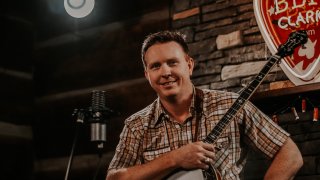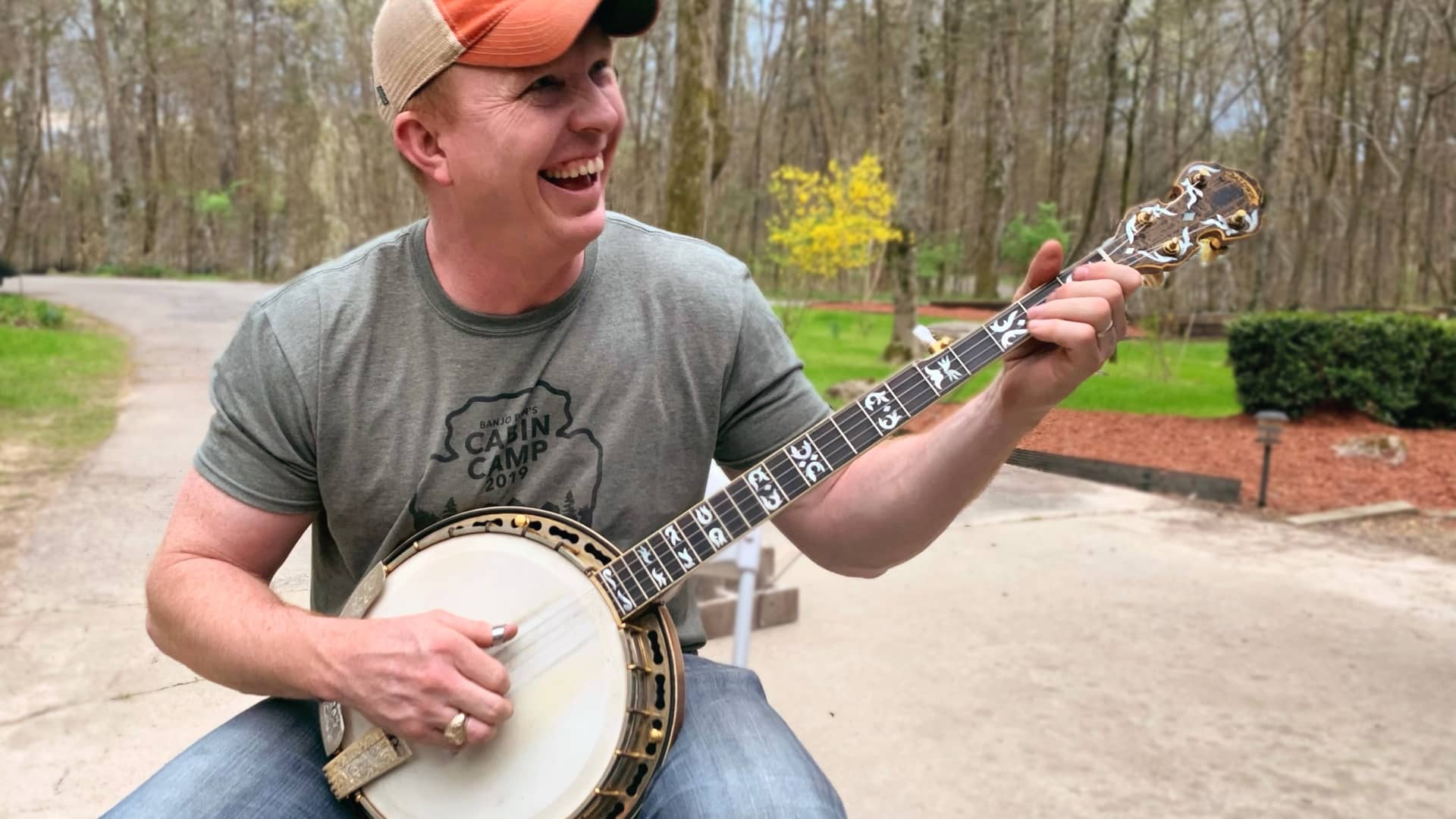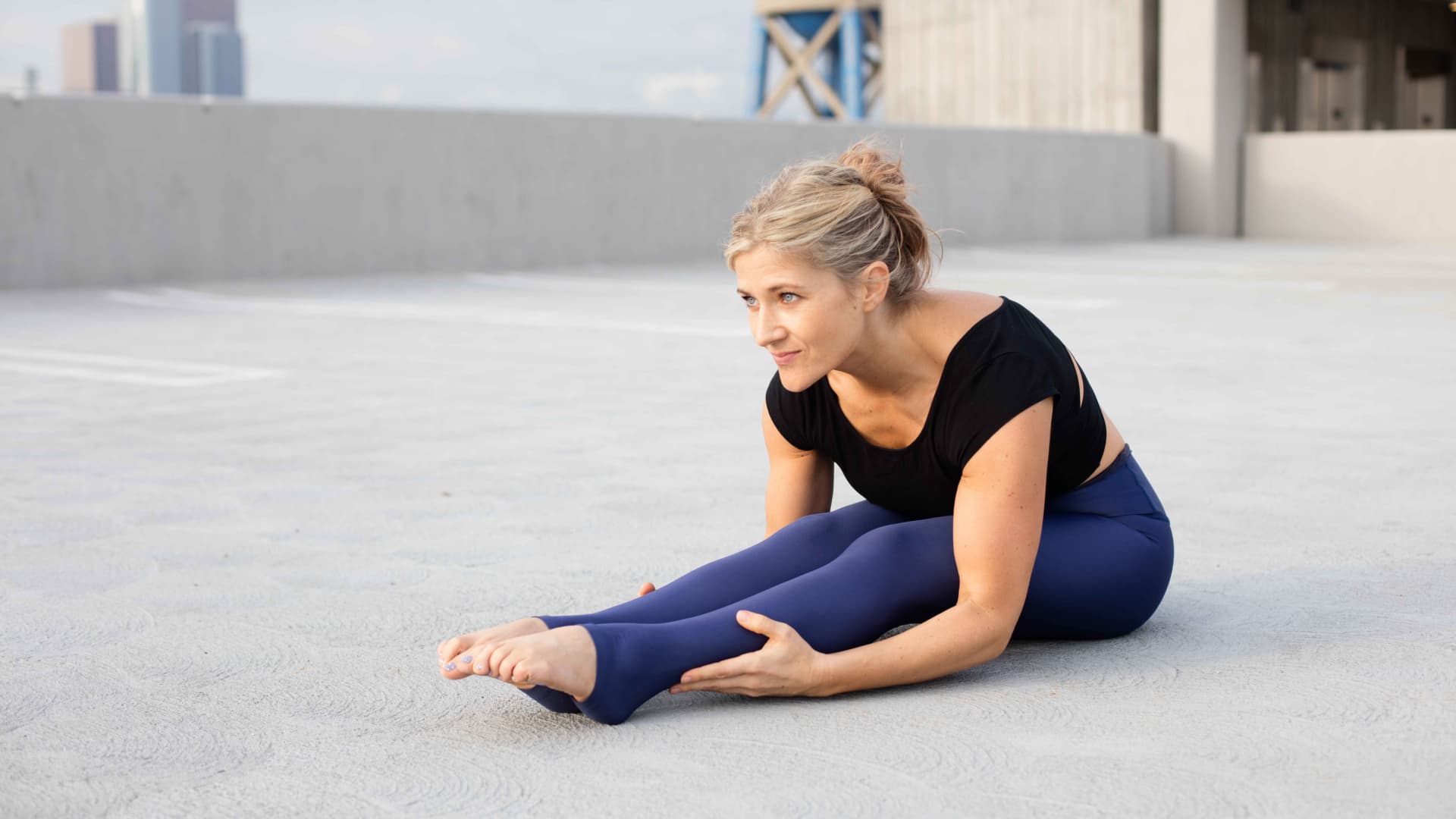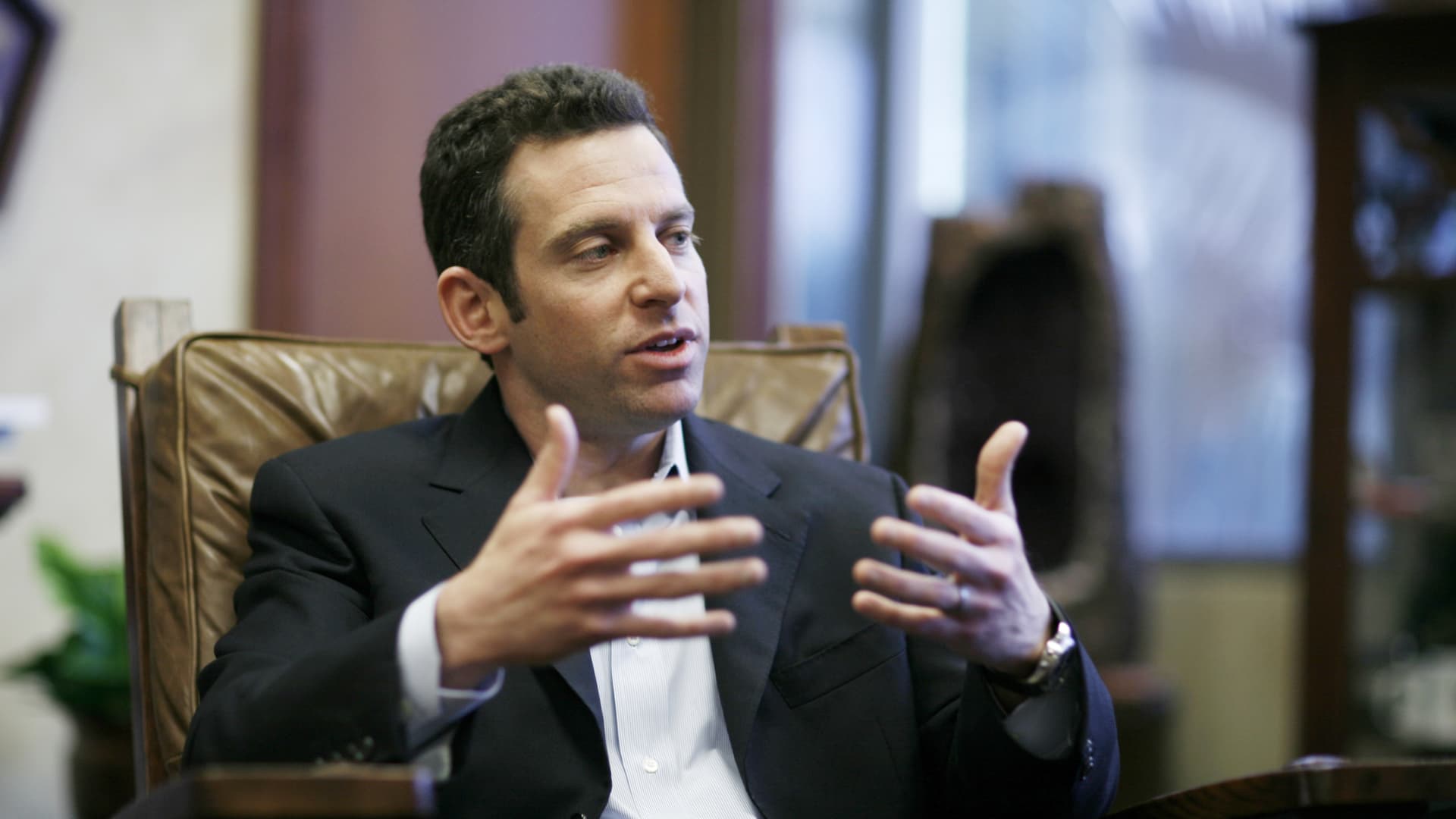
- In Nashville, Banjo Ben Clark had his busiest year ever even with no live music events.
- "I was really glad to see a lot of my friends enter into the instruction side of things," Clark said.
- In the fitness and health markets, trainers and content creators also saw a boom in their online businesses.
As an aspiring mandolin player, I've spent years looking up YouTube videos to learn various bluegrass licks, frequently landing on lessons from a guy who goes by Banjo Ben.
In the early days of the pandemic, as we were all searching for ways to stay productive and sane while stuck at home, I found myself strumming with greater frequency and coming across Banjo Ben more often. I soon decided that, after roughly two decades of directionless noodling, I was finally going to learn to play this instrument.
I stopped freeloading and hopped over to Banjo Ben's website, where $25 a month would give me access to hundreds of lessons, from basic songs and scales to advanced picking techniques. Banjo Ben is now a fixture on my daily pandemic schedule.
Get Tri-state area news and weather forecasts to your inbox. Sign up for NBC New York newsletters.
These stories are everywhere. The year of working from home while homeschooling our kids has led many of us to adopt entirely new habits, relying on our devices and internet connections in ways we hadn't in the past.
In addition to Clark, there's Sarah Kusch, a personal trainer in Los Angeles, who I learned about from my wife and whose videos have replaced my gym membership. And after trying and failing to get into meditation on many occasions, I tested out Waking Up from Sam Harris and never turned back.
Lately I've been curious about the people behind these apps. How were their lives altered, personally and financially, by the pandemic? And what do they expect as society reopens and life returns to some sense of normalcy?
Money Report
So I reached out, and they all agreed to be interviewed.
Online from Nashville

On his seven-acre property in Nashville, Tennessee, Ben Clark has spent a decade building a music studio to house his instruments and video production and editing gear. He teaches banjo, guitar and mandolin courses.
Like many multi-instrumentalists in and around Nashville, Clark has worked as a professional musician in recording sessions and on tours, most notably playing banjo, mandolin, dobro, guitar, and piano for Taylor Swift starting in 2006.
By 2011, he'd put most of that to the side to focus on music instruction for his website, Banjobenclark.com. When the pandemic hit last year, sign-ups initially ground to a halt as economic concerns caused consumers to slash discretionary spending.
Within a couple months, business was bouncing back, and Clark, who has two young daughters, said 2020 ended up as his busiest year ever, even as Nashville's renowned live music scene was hollowed out.
"So many of my friends that are musicians sadly found themselves immediately out of work," said Clark, in a video chat from his studio. "Just a few years ago when I was on the road I would've been the same way. I was really glad to see a lot of my friends enter into the instruction side of things. That really was a lifesaver for so many musicians, having the ability with technology to be accessible to folks like you who are stuck at home."
Clark, 41, said the number of customers on his site jumped by about 20% last year. He didn't want to provide specific revenue figures, but said it's a million-dollar-plus business.
He also knew that for many people, including some existing members, $25 a month would be out of reach. Over the summer, he dropped the price to $5 for new customers and even gave away subscriptions to anyone who said they couldn't afford to pay.
"I wanted to make the service as accessible as possible to people all around the world," Clark said.
While his digital business grew rapidly, Clark's e-commerce operation was hammered. On his storefront, Clark sells instruments, strings and accessories. But because of supply chain disruptions around the world, manufacturing slowed and Clark couldn't stock new products.
"It wasn't because people didn't want to buy," said Clark, who employs eight additional people and wanted to make sure they all kept their jobs. "I took a loss because I still had staff to feed and we couldn't get inventory. The pipeline stopped."
Clark said he's excited for the economy to reopen so he can start traveling and welcoming more people to his property, where he hosts camps and retreats for music enthusiasts. During Covid, he's picked up customers across the globe and has spent more time helping them one-one-one, when he's not creating new on-demand content. He's hoping to do a mini-European tour, bringing people together for day-long camps.
While Clark does expect some drop in revenue as people get back to socializing and attending concerts and festivals, he says there's been a fundamental shift to online instruction, and that's not going away. Rather, he's looking to more of a hybrid future, where there are still plenty of monthly subscribers but also in-person retreats and classes.
"I see the gatherings as a part of my business model, and it's currently not in the way that it would be," Clark said. With online training, "throughout the pandemic, there were great strides made," he said. "Folks that would've never considered online education were forced to do it for work or their own sanity."
Clark is also looking forward to reconnecting with his sisters, twins Penny and Katy, who live on the family farm in East Texas and perform as an acoustic duet called The Purple Hulls. Clark joins them for festivals when he can, and he expects to be back at it soon.
"I'm ready for live music to open back up," Clark said.
Postpartum workouts on Instagram

Sarah Kusch led the life of an in-demand personal trainer. In between teaching 12 classes a week at Equinox in Los Angeles, she was driving from gym to gym and client to client, trying to fit in as much work as she could during her daughter's school day.
She's also a top fitness expert on the workout app Grokker, which has provided some residual income for the past few years.
When the pandemic hit, Kusch's work dried up overnight. There were no classes to teach or clients to see. She'd had her second child four months earlier and, as a freelancer, had nobody paying her for maternity leave. Meanwhile, she was rightfully concerned about her husband's job security — he's a talent agent in the entertainment industry.
Right away, she began experimenting with live videos from her phone. Surrounded by a baby, a dog and a ton of uncertainty, Kusch flipped on Instagram and started leading online classes for donations, while also welcoming friends and strangers into her life.
"I went through my whole postpartum journey of getting back into shape live on Instagram," Kusch said in a phone interview, which was interrupted by the occasional baby scream. "People have said it's like reality TV meets fitness."
Soon, she started taking those videos and uploading them to Vimeo so she could turn her website into an on-demand fitness studio. Some of her Grokker fans found her on Instagram. Others came by word of mouth. From single videos, she moved into posting monthly challenges that were still funded by donations.
As the months went on and her userbase grew, Kusch decided to create a subscription service. She knew it would be competitive. There are any number of fitness apps that start at $10 a month. Kusch would be asking people to pay considerably more.
For $49 a month, users get access to her Instagram Live videos and, for an additional $30, they can also get all of her on-demand content. She has a calendar of all upcoming classes and a wide assortment of strength, mobility, high-intensity interval training (HIIT) and Tabata workouts, all requiring little space or equipment.
It's cheaper than your typical gym membership, but still a commitment. Kusch said she has about 200 monthly subscribers and is adding about 10 a month. She's now making more money than she was before the pandemic.
Getting there has required a hefty investment of time and resources, and she hopes it will continue to pay off as gyms reopen. She hired a pro to redo her website and has purchased a number of small business software tools to stay organized and keep in touch with customers.
Based on what she's hearing from her growing community, people want her to keep going. After 17 years in the personal training business, Kusch is banking on a different model, one where she not only provides users with workouts and training sessions but also a running commentary about juggling parenthood, work and the stress of it all.
"I'm completely authentic with them and open with them every step of way," Kusch said. "That's been a big gamechanger."
Waking Up

Sam Harris has had an illustrious career as a best-selling author, neuroscientist, philosopher and creator of the popular "Making Sense" podcast. He has over 1.4 million Twitter followers. He also has many years of mindfulness practice under his belt.
In 2018, Harris launched the Waking Up app to help people use mediation as a way to better enjoy life in the present. The app includes 10-minute or 20-minute daily meditations, many sessions on theory, interviews with experts and a section for meditating with kids.
Harris, 54, agreed to answer some questions by email. Relative to Clark and Kusch, Harris's daily life hasn't been terribly interrupted by the pandemic.
"Apart from seeing no one outside my family for a year, not all that much changed," Harris wrote. "It felt like a retreat — but one where I discovered that my primary purpose in life was to load and unload the dishwasher."
Harris said that it's natural for people to seek out meditation when times are challenging or when they're hurting, sad or confused. They may find that if they start feeling better, it's a sign of progress. But to Harris, mindfulness isn't transactional. It's for good times and bad, pandemic or not.
"Generally speaking, there's no need for context-specific meditations," Harris said. "What works in normal life works when the sky is falling."
The health market broadly has flourished in the past year, with meditation apps like Calm and Headspace seeing a surge in downloads. Waking Up, which costs $100 a year, is no different. It's currently the 24th highest-grossing iOS app in the health and fitness space, according to AppAnnie.
Harris handed off business questions to Scott Hannan, Waking Up's head of marketing. Hannan said that subscribers increased by 65% in 2020 and that the company gives away subscriptions to people who say they can't afford them.
Hannan said the company isn't projecting any real slowdown as the pandemic fades because "the value of bringing our full attention to every moment and living the most fulfilling life possible is as relevant in May 2021 as it was in the depths of the pandemic."
As the pandemic winds down, Harris does expect some things to be different from his pre-Covid life. For one, he'll be on fewer flights. Here's what he had to say about that:
"I think I will probably travel and tour less. This isn't due to a lingering concern about health — I'm confident that we'll put COVID fully behind us at some point. But I've drawn the same lesson that everyone seems to have drawn from working remotely: the old model of getting on a plane for the purpose of having a conversation — wrapping a 2-hour meeting with 3 days of travel — doesn't make a lot of sense. In the future, I'll travel for a meeting or an event only because I truly feel like travelling."
WATCH: What we've learned about online learning with Khan Academy CEO






